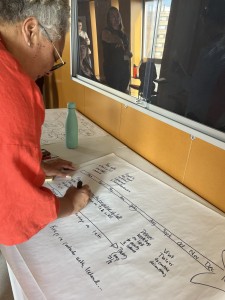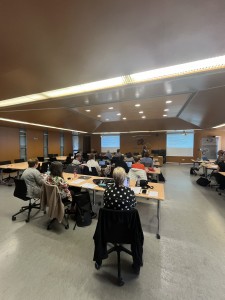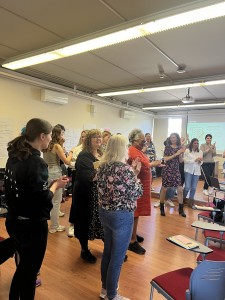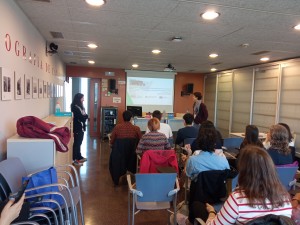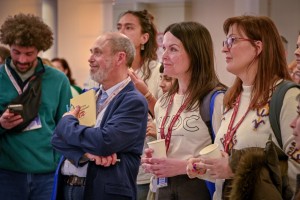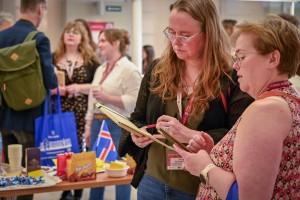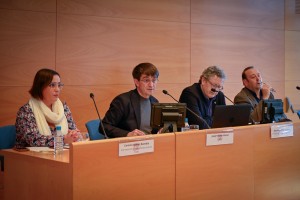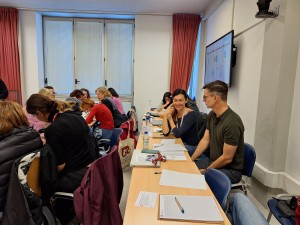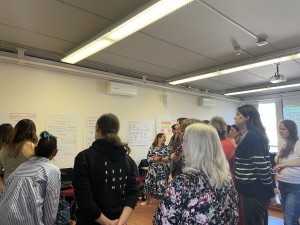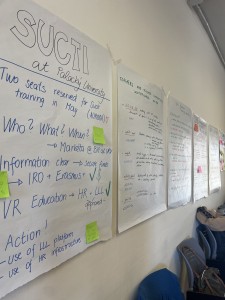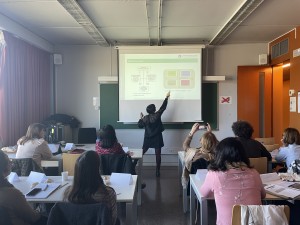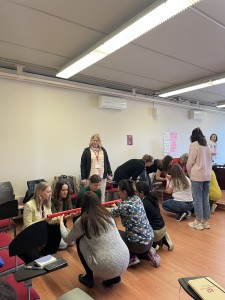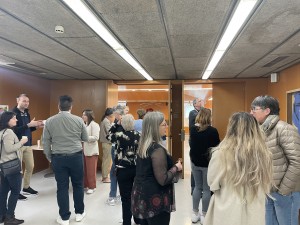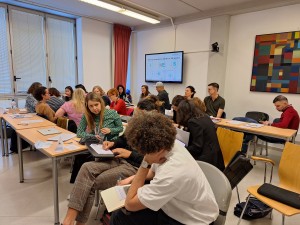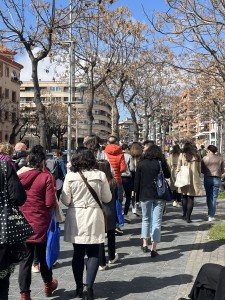08/03/2024
The URV consolidates its international leadership in service learning, the professionalisation of doctoral studies and internationalisation at home
Staff from 30 universities around the world are being trained at the URV, a benchmark in these areas of teaching, management and university research

Staff from 30 universities around the world are being trained at the URV, a benchmark in these areas of teaching, management and university research
The Universitat Rovira i Virgili (URV) is a benchmark in a wide variety of areas in which improvements have been made to the learning experiences of undergraduates and master’s degree students and their participation in society, the relations between thesis supervisors and doctoral students at the beginning of their research careers, and the impact of internationalisation at the institution. What started as pilot experiences almost ten years ago are now programmes that are an integral part of teaching, management and research activities at the University and, over the years, have proved to have a positive impact.
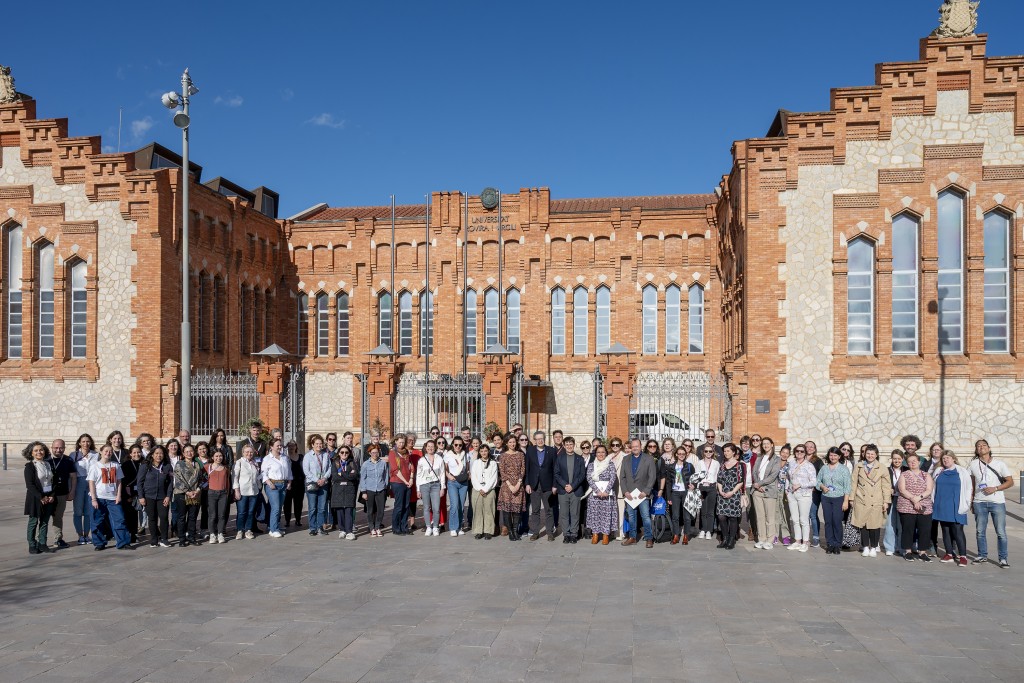
A photo of the participants in the symposium this Monday in front of the URV’s Rector’s Offices
For this reason, 68 professionals from 30 universities and 21 countries have come to the URV to be trained and share good practices in these three areas from 11 to 15 March. To this end, the University has organised three intensive courses, one for each professional profile, which combine online and in-person classes to provide innovative and cooperation-focused learning, teaching and training (blended intensive programmes). They are funded by the European programme Erasmus+. The teaching and research staff and the technical, management and administrative personnel taking part come from universities that are members of the international networks to which the URV also belongs, such as the SGroup Network, INU and the Aurora Alliance. Almost all the partner institutions from this latter alliance are participating in the courses.
Engagement of the university community with the local area through service learning
One field in which the URV plays a major role is service learning, an educational project which combines learning processes and community service, so students can develop not only their social engagement but also learn the content, competence and abilities of each degree. Many students and teachers use this methodology every year at the URV and they respond to the needs of social organisations. During the intensive course “Community Service Learning and Third Mission: Local Service for Global Learning”, administrative and teaching staff learn about the service-learning methodology through the experiences of the URV and the international guests, and they do a practical assignment so that they return to their corresponding universities with a project that they can implement.
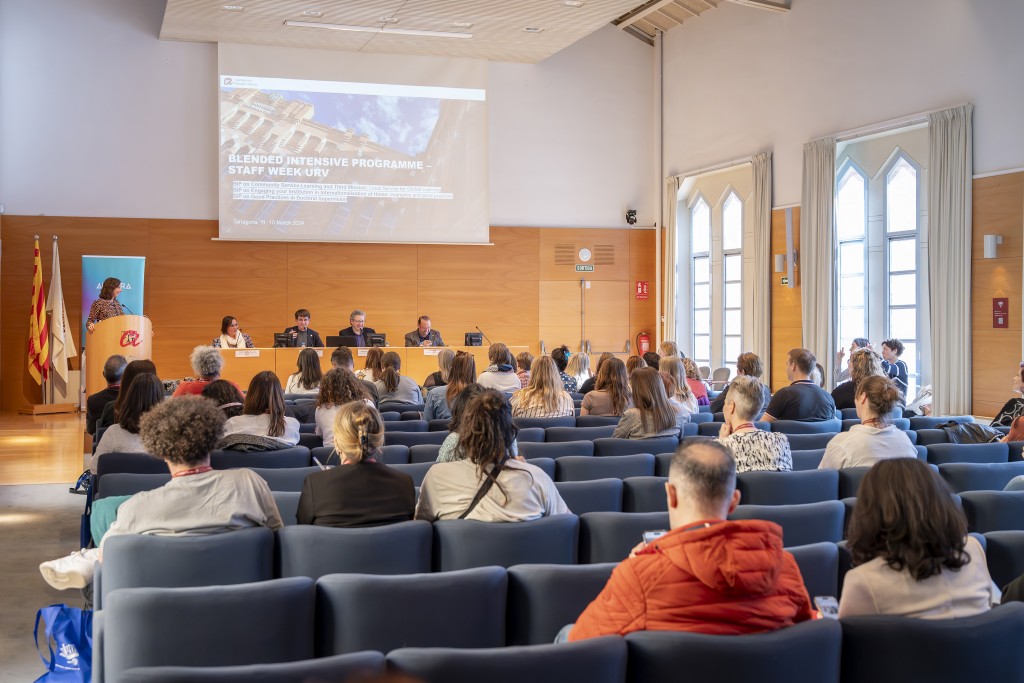
A good relationship between supervisor and doctoral students improves research results
In 2013, the URV set up a programme for the professionalisation of doctoral supervision. Every year this programme trains thesis supervisors to improve the quality of the work they do. In the workshops, they explore those strategies and competences that lead to an open, honest, and professional relationship with their doctoral students. This leads to greater satisfaction among supervisors and doctorands, and improved research results. Therefore, the course “Good Practices in Doctoral Supervision” will condense some of the knowledge generated over the years. The participants in this BIP will work with a very practical and collaborative format to ensure the exchange of good practices and mutual learning.
Internationalisation enhances the experiences of the university community
The URV has been recognised by various international organisations for its innovative approach to internationalisation, and particularly for how it deals with the concept of internationalisation at home. This involves incorporating the international and intercultural dimensions not only into the formal and informal curriculum of the students but also, in the case of the URV, into staff training, who play a decisive role when it comes to opening the institution up to the world. This approach was adopted when it became clear that the managerial, administrative and service staff (PTGAS) are key to the support provided to international students and visitors, but, despite this, they felt disconnected from the process of internationalising the University because they had fewer opportunities than the teaching staff to participate in activities in this area and did not know how to contribute.
The URV’s International Center decided to address the problem and they have trained 130 members of URV staff and 194 trainers from other higher education institutions, who, in turn, have trained the staff from their own universities. In this context, the course “Engaging your institution in Internationalisation at Home: examples and good practices” focuses on various good practices and projects that the URV has implemented in their internationalisation strategy at home. It also requires the participants to contribute with experiences from their own institutions.
The training week for staff from 30 universities and 21 countries provides three Erasmus blended intensive programmes (BIP) and consolidates the URV’s international leadership in the fields of service learning, doctoral supervision and internationalisation at home.
